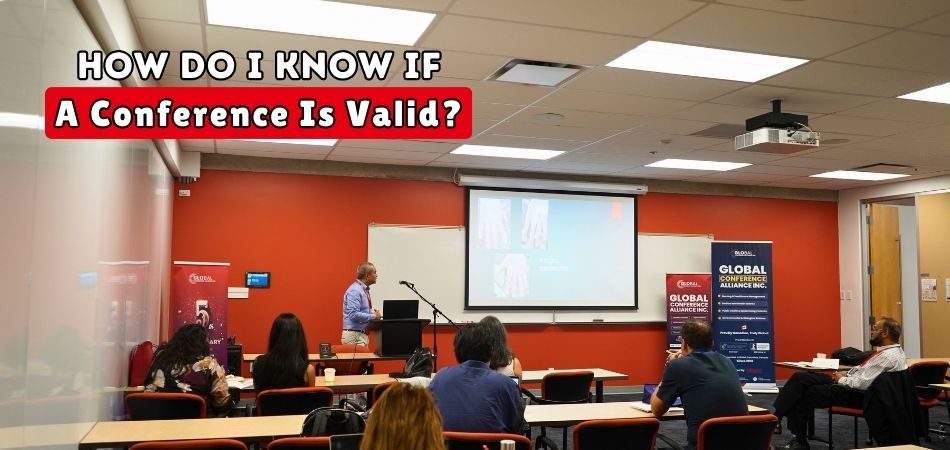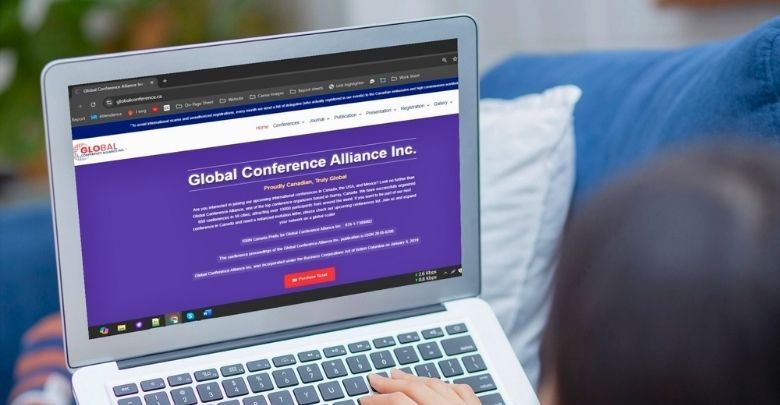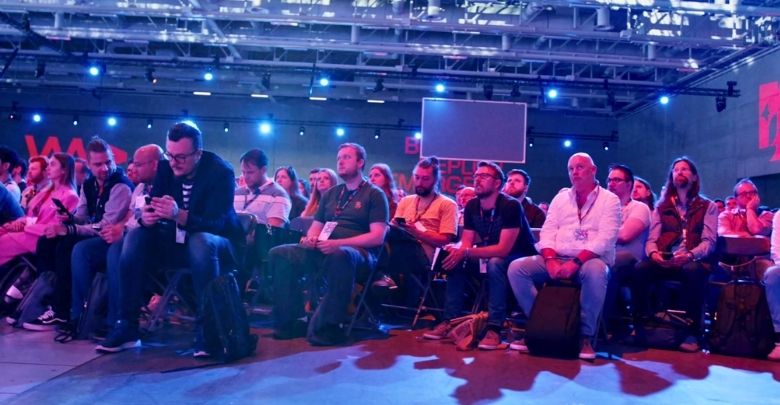Attending conferences can be a powerful way to expand your knowledge and grow your professional network. But with so many events available, how do you separate the credible ones from the questionable ones? Asking yourself, “How do I know if a conference is valid?” is the first step toward making the right choice.
To determine if a conference is worth your time, look for key indicators like well-known speakers, reputable organizers, and a clear agenda. These factors often point to a genuine event that offers real value and growth opportunities.
In this article, we’ll explore practical steps and insights to help you confidently decide which conferences are truly worth your investment. Keep reading to ensure you never fall for a low-quality event again.
What is the Importance of Valid Conferences?
Valid conferences are more than just gatherings; they are crucial for your career growth and professional development. Attending credible events ensures you gain value that directly impacts your skills, knowledge, and connections.
- Networking Opportunities: A valid conference attracts professionals, experts, and like-minded individuals from your industry. It’s a chance to build meaningful relationships, exchange ideas, and open doors to future collaborations.
- Access to Industry Leaders: These events feature well-known speakers and leaders who share their expertise. Learning from the best provides you with fresh insights and perspectives that you can apply in your work or business.
- Skill Development: Valid conferences offer workshops, training sessions, and presentations that help you develop your skills. You’ll gain practical knowledge that’s directly relevant to your professional growth.
- Staying Updated: The business world is always changing, and credible conferences keep you in the loop. They introduce you to the latest trends, innovations, and technologies, ensuring you stay ahead of the curve.
- Credibility and Recognition: Participating in reputable events adds credibility to your professional profile. It shows your commitment to staying informed and engaged with the industry’s best practices.
- New Opportunities: Valid conferences often lead to unexpected opportunities, from job offers to partnerships. You never know who you might meet or what project might come your way by attending these valuable events.
In short, a valid conference is a gateway to growth, learning, and new possibilities in your career.
How Do I Know If a Conference Is Valid?
Determining whether a conference is valid can be challenging but crucial. With so many events claiming to offer great value, knowing what to look for makes all the difference. Here are some key indicators to help you decide if a conference is truly worth your time and investment.
Professional Website
A legitimate conference will have a well-designed and informative website. Check for details about the event agenda, speakers, venue, and registration process. A poorly maintained or incomplete website often signals a lack of professionalism or organization.
Reputable Organizers
Investigate the event organizers to see if they have a solid background in hosting similar conferences. Established organizers usually have a history of successful events and are known in the industry. Be cautious of unknown or newly formed organizations with little online presence.
Well-Known Speakers
Quality conferences feature reputable speakers who are experts in their field. Research the listed speakers to ensure they have relevant experience and credibility. When it comes to finding real conferences, the presence of well-known industry experts is often a reliable indicator.
Clear Agenda and Schedule
A transparent agenda with detailed session topics, timings, and activities indicates a well-structured event. Conferences with vague or constantly changing schedules may lack proper planning, which can lead to a disappointing experience.
Past Event Success
If the conference has been held before, look into the feedback from past attendees. A history of successful events with positive testimonials is a good sign of credibility. A lack of reviews or negative comments should prompt you to investigate further.
Reasonable Registration Fees
Compare the registration fees with similar events in the industry. While some fees may seem high, they should be justifiable based on the value offered, such as the quality of speakers and the event setup. Unusually high fees without clear benefits can be a red flag.
Verified Sponsors and Partnerships
Trusted conferences often have sponsorships or partnerships with well-known brands, companies, or professional organizations. These affiliations add to the event’s legitimacy. A lack of recognizable partners might suggest a lower level of credibility.
Active Online Presence
Check the conference’s activity on social media platforms and professional networks like LinkedIn. An active online presence with regular updates, interactions, and community engagement shows that the event is genuine and valued by its audience.
These indicators will help you confidently answer the question, “How do I know if a conference is valid?” By paying attention to these details, you can avoid low-quality events and make sure your time and resources are well-invested in worthwhile experiences.
What Are the Red Flags of Fake Conferences?
Attending a conference can be a significant investment, so it’s important to avoid falling into the trap of fake or poorly organized events. Spotting the red flags of fake conferences early can save you time, money, and frustration. Here are some key warning signs to watch for.
Unclear Agenda and Speaker Details
A lack of detailed information about the event’s agenda or speakers is a major red flag. If the schedule is vague or keeps changing, and the speakers aren’t well-known in their field, proceed with caution.
High-Pressure Registration Tactics
If the event organizers constantly push you to register quickly or offer “limited-time” discounts, be wary. Genuine conferences rarely pressure potential attendees to sign up immediately.
Unknown or Dubious Organizers
Always research the event organizers. If the company hosting the conference has no history or an online presence, it might be a scam. Reputable events are usually organized by well-known institutions or individuals.
Suspiciously High Fees
Be cautious of conferences that charge excessively high registration fees, especially if they don’t provide clear value for the cost. Compare the fees with similar events in the industry to ensure they’re reasonable.
No Refund Policy
A conference with a strict no-refund policy or unclear terms for cancellations is a warning sign. Legitimate events usually offer a fair refund policy in case of unforeseen circumstances.
Lack of Online Presence or Reviews
Authentic conferences will have a solid online footprint, including social media activity and attendee reviews. If you can’t find any trace of the event online or if there are multiple negative reviews, it’s best to stay away.
Spotting these red flags can help you avoid scams and ensure you only invest in conferences that genuinely contribute to your professional growth.
How to Research the Conference Organizers and Speakers?
Knowing how to research the conference organizers and speakers is key to determining whether an event is worth your time. This step helps you separate genuine opportunities from poorly organized or even fraudulent ones. Here’s how to get started:
Visit the Organizer’s Website
Start by checking the official website of the conference organizers. Look for information on their past events, professional affiliations, and mission. A well-designed website with clear details about their team and history indicates credibility and professionalism.
Check LinkedIn Profiles
LinkedIn is a powerful tool for researching both organizers and speakers. Look up their profiles to see their qualifications, past achievements, and endorsements. Legitimate professionals will have a well-maintained profile that reflects their expertise and active involvement in their field.
Review Past Events
A good organizer usually has a track record of successful conferences. Search for reviews or testimonials from attendees of their past events. Consistently positive feedback and a history of well-organized events are strong indicators of a credible organizer. This is especially useful when analyzing upcoming conferences in Mexico, where a growing number of high-quality events are being held.
Review Speaker Credentials
The speakers at a conference can tell you a lot about its value. Research the backgrounds of the speakers, focusing on their professional achievements and experience in the industry. Renowned speakers with relevant expertise add significant value to the event.
Check for Media and Industry Mentions
Look for news articles, blog posts, or industry publications that mention the conference or its organizers. Positive media coverage and recognition within the industry signal that the event is respected and holds a good reputation.
Researching the organizers and speakers thoroughly helps you make an informed decision about attending the conference. By following these steps, you’ll gain confidence in choosing events that truly contribute to your professional growth.
The Role of Reviews and Testimonials in Verifying Conferences
Reviews and testimonials play a vital role in helping you determine the authenticity of a conference. They provide a glimpse into the experiences of past attendees, helping you make an informed decision before investing your time and resources. Here are some key ways they contribute to verifying conferences.
Firsthand Experiences
Reviews and testimonials come directly from individuals who have attended the event. Their honest feedback gives you a realistic picture of what to expect, from the quality of the sessions to the professionalism of the organizers.
Highlighting Strengths and Weaknesses
A credible review highlights both the positives and the areas that need improvement. This balanced perspective helps you gauge whether the conference’s strengths align with your goals and if the weaknesses are deal-breakers.
Building Trust and Credibility
Positive testimonials from respected professionals in your field add credibility to the event. When industry experts speak highly of a conference, it reassures you that the event is genuine and worthwhile.
Spotting Red Flags
Negative reviews often point out recurring issues like poorly organized schedules, low-quality content, or lack of promised benefits. These red flags serve as warning signs, helping you avoid wasting your time on an unproductive event.
Assessing Value for Money
Reviews often include opinions on whether the event was worth the investment. By comparing different testimonials, you can assess if the conference provides a good return on your time and financial commitment.
So, reviews and testimonials act as your guide to making informed decisions about attending conferences. They offer valuable insights that help you choose events that genuinely contribute to your growth and prevent you from falling for poorly organized or fraudulent ones.
What to Do If You Discover a Conference Is Not Legitimate?
Realizing that a conference you planned to attend is not legitimate can be frustrating and disappointing. But don’t worry—there are steps you can take to protect yourself and prevent others from falling into the same trap. Here’s what you should do:
Contact the Organizers Directly
Reach out to the organizers and ask for clarification. Legitimate organizers will address your concerns or provide a refund. If they refuse to communicate or offer vague responses, it’s a sign that your suspicions were right.
Request a Refund
If the event is indeed fake, demand a refund. Use documented proof of any misleading information to strengthen your case. If the organizers don’t cooperate, consider reaching out to your payment provider to dispute the transaction.
Warn Your Professional Network
Share your experience on professional platforms like LinkedIn and other social media channels. By spreading the word, you help others avoid falling for the same scam. Your warning could save them time, money, and effort.
Report the Scam
File a complaint with consumer protection agencies or websites that track online fraud. You can also report it to industry-specific organizations. Reporting scams play a vital role in finding legitimate conference, as it helps create a safer environment for future attendees.
Leave Honest Reviews
Write detailed reviews about your experience on online forums and review sites. Being transparent in your feedback helps other professionals identify red flags in future events.
Learn from the Experience
Use this situation as a learning opportunity to refine your research skills. Next time, you’ll know what signs to look for to identify a credible conference before you commit to attending.
Taking these steps ensures that your efforts to expose the scam can help others make informed decisions and avoid similar issues in the future.
Frequently Asked Questions
When considering whether a conference is valid, it’s common to have a few lingering questions. Below are some frequently asked questions to help clarify doubts you might have about identifying credible conferences.
Can I Trust a Conference if the Registration Fee is Very Low?
A low registration fee doesn’t always mean the conference is fake, but it’s worth investigating further. Check for quality speakers, the organizer’s reputation, and attendee reviews to determine if the event is truly credible.
Do All Conferences Require a Website to Be Valid?
Most legitimate conferences will have a well-maintained website with clear details. However, smaller or niche events might not have a sophisticated online presence. In such cases, rely on speaker lists, reviews, and organizer credentials to verify their authenticity.
Is a New Conference Automatically Considered Suspicious?
No, a new conference isn’t always a scam. Even fresh events can be legitimate if organized by a reputable group. Check the organizer’s history with similar events and whether the speakers and topics align with industry standards.
Are Virtual Conferences as Credible as In-Person Ones?
Yes, virtual conferences can be just as credible if they feature interactive sessions, reputable speakers, and a clear agenda. Look for platforms that support engagement and networking to ensure the event’s legitimacy matches that of in-person conferences.
Should I Attend a Conference without Recognizable Speakers?
It’s risky to attend conferences without well-known speakers, but not necessarily a deal-breaker. If the event still offers valuable content and has a reputable organizer, it might still be worth considering. Always weigh the benefits before committing.
Last Words
Attending the right conferences can significantly impact your professional growth and career success. But the real challenge is asking, “How do I know if a conference is valid?” Taking the time to research and identify credible events is essential to avoid wasting your resources.
By focusing on key indicators like reputable organizers, recognized speakers, and clear agendas, you can confidently choose events that truly add value. Trusting these steps will help you make informed decisions and enhance your overall experience.
Remember, knowing how do I know if a conference is valid is about making sure your time and money are invested in the best possible opportunities. Stay vigilant, trust your instincts, and always prioritize quality when selecting which conferences to attend.








